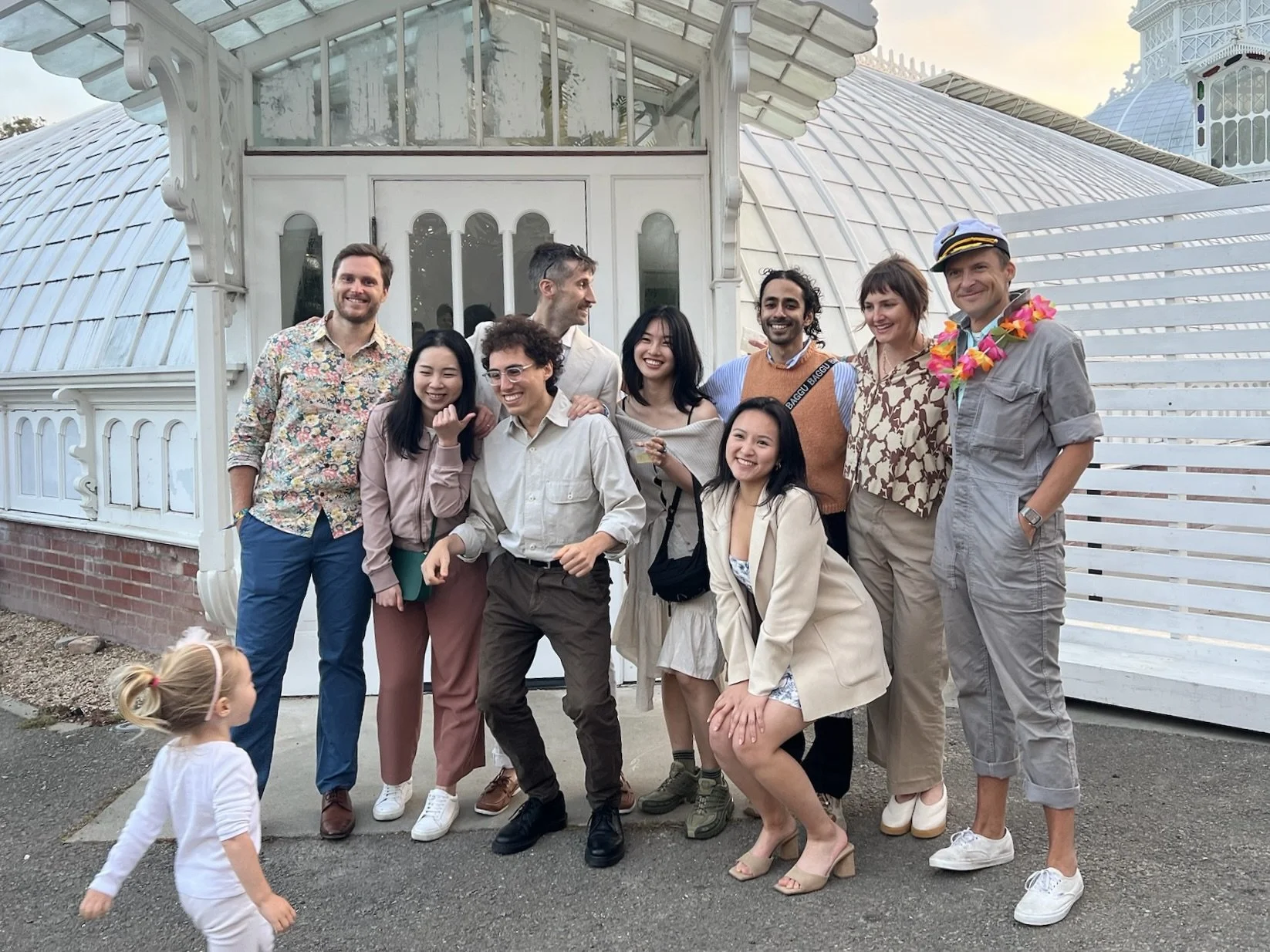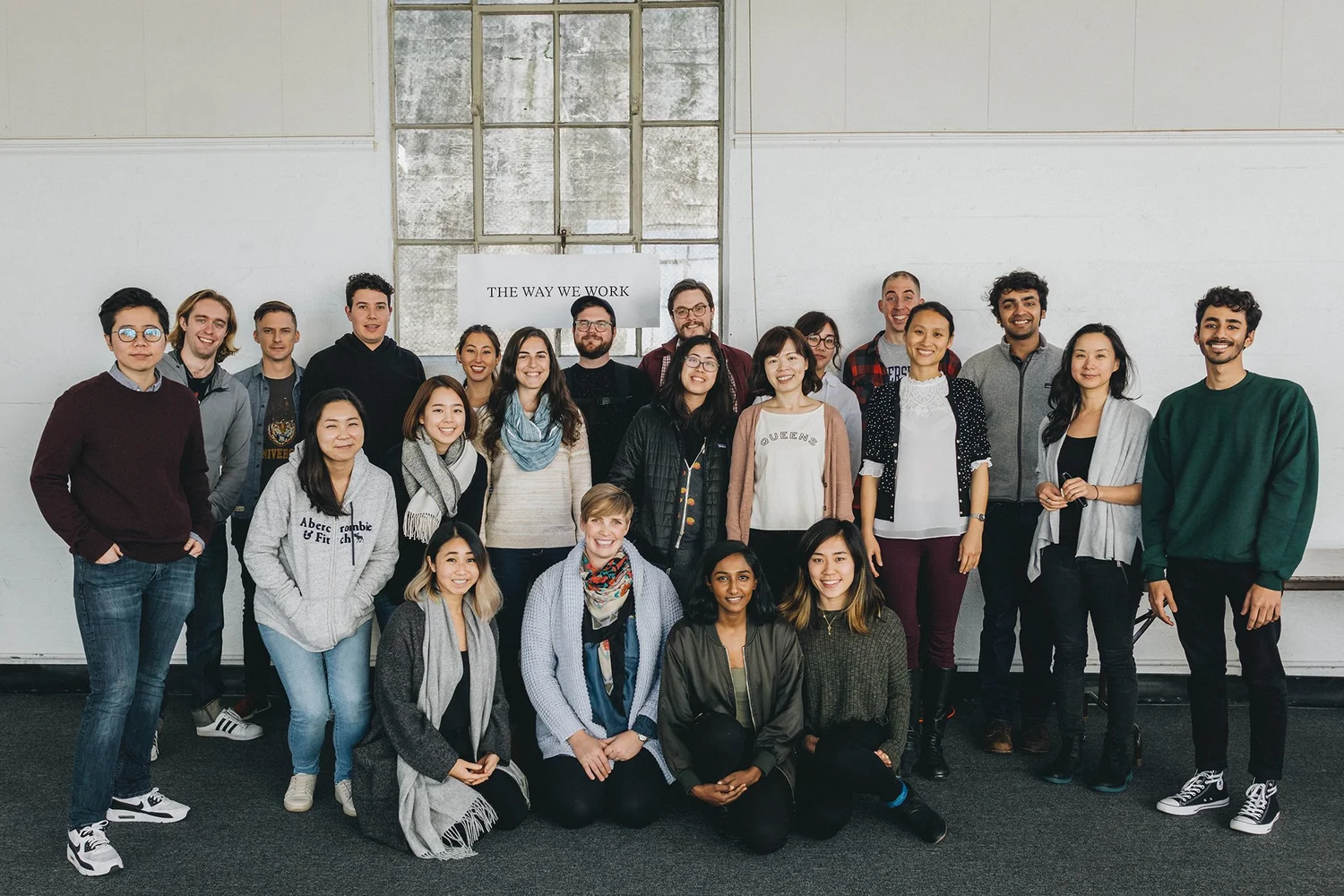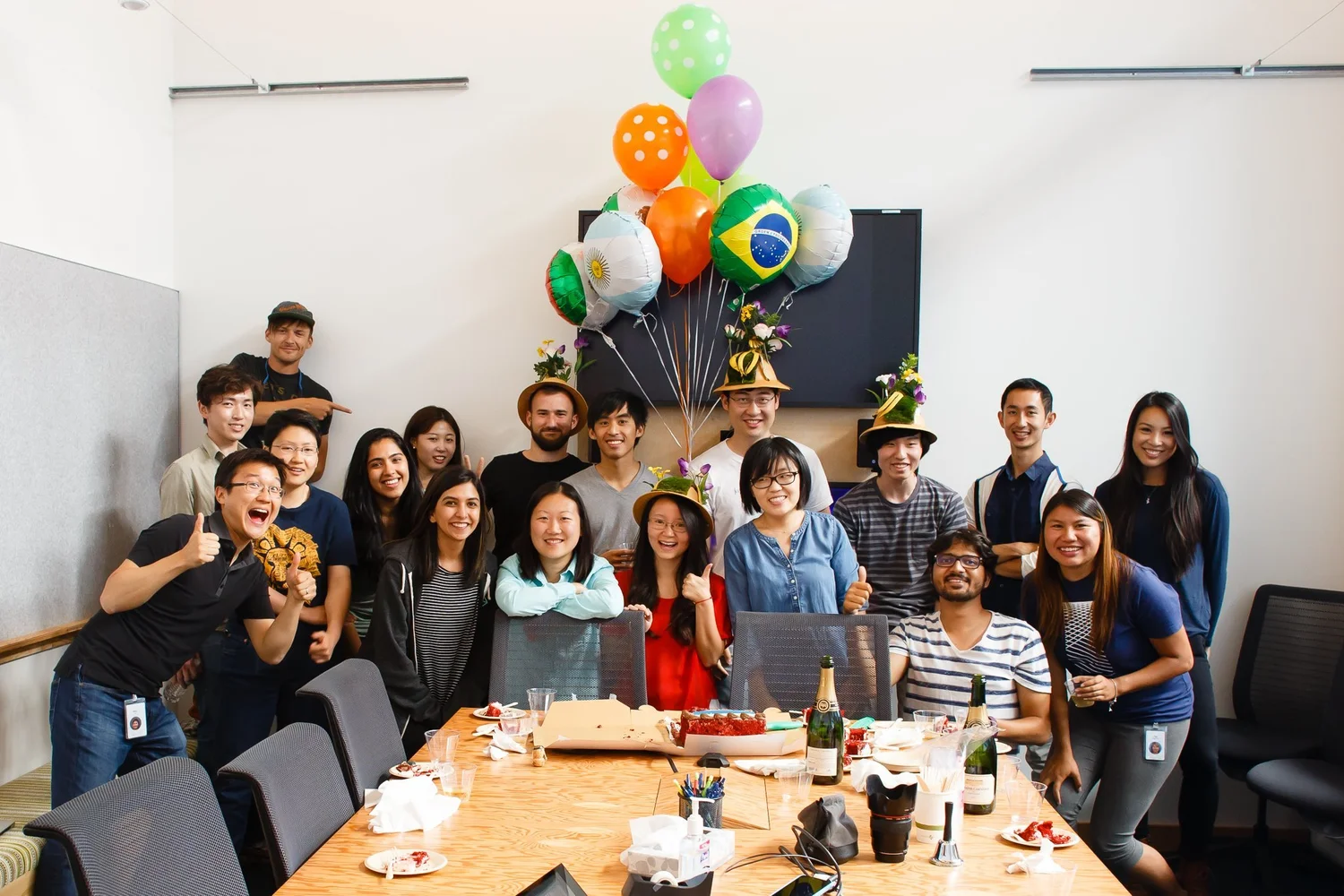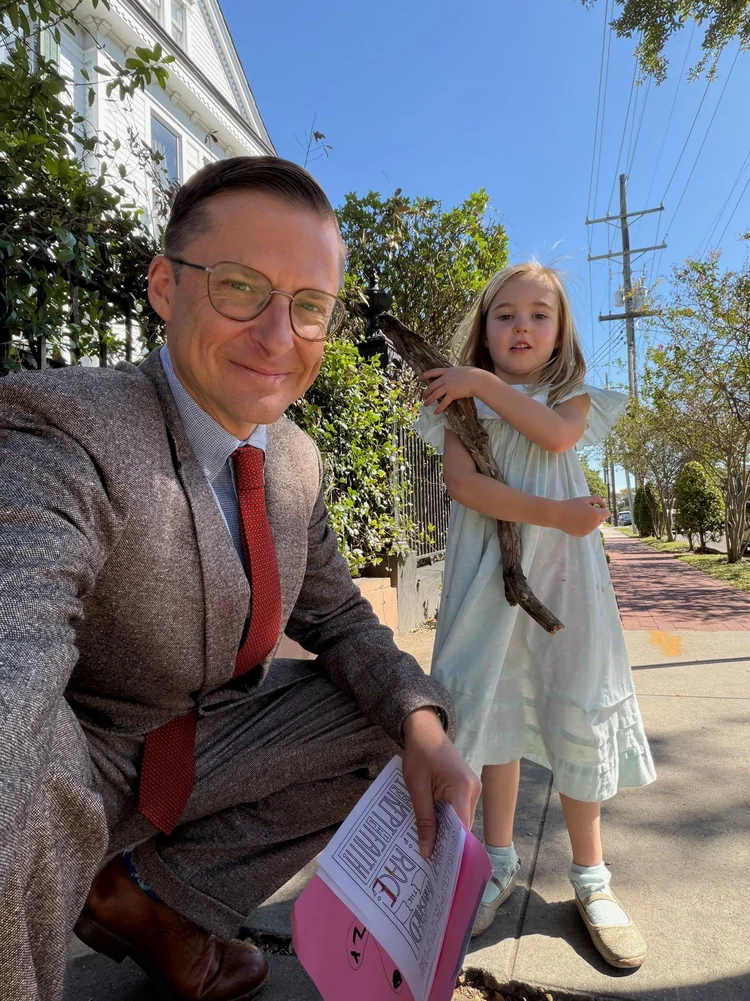Hi! My name is Mills Baker. I'm from New Orleans and after years in New York and more than a decade California, I'm back home again with my wife Abby, our daughter Keziah, and our son Raines. I'm the Head of Design at Substack, supporting an amazing team which serves creatives and audiences alike in a new model of distribution and monetization which we believe will foster a healthier, more sustainable online media ecosystem. Below, you can see some of us at Substack's 2023 summer party at the Conservatory of Flowers!

I currently post at Rats from Rocks with my pals David Cole and Omar Khalid. Some recent posts from me include thoughts on my father's death and more on my mother's death; concerns that people have been misinformed about the origin of the universe; the usual garbage about literature and technology; and so on. David and I also write Dead Horses, a design + technology newsletter.
I'm most active online on Substack.
I've been online since eWorld and sent my first web site over FTP in 1997 after I learned HTML from Jonah Peretti in my hometown high school. Since then, I've worked for Quora, Facebook, some small startups, a massive retailer, a veterinary hospital, Tipitina's, and myself, doing freelance web design. My full CV is here.






